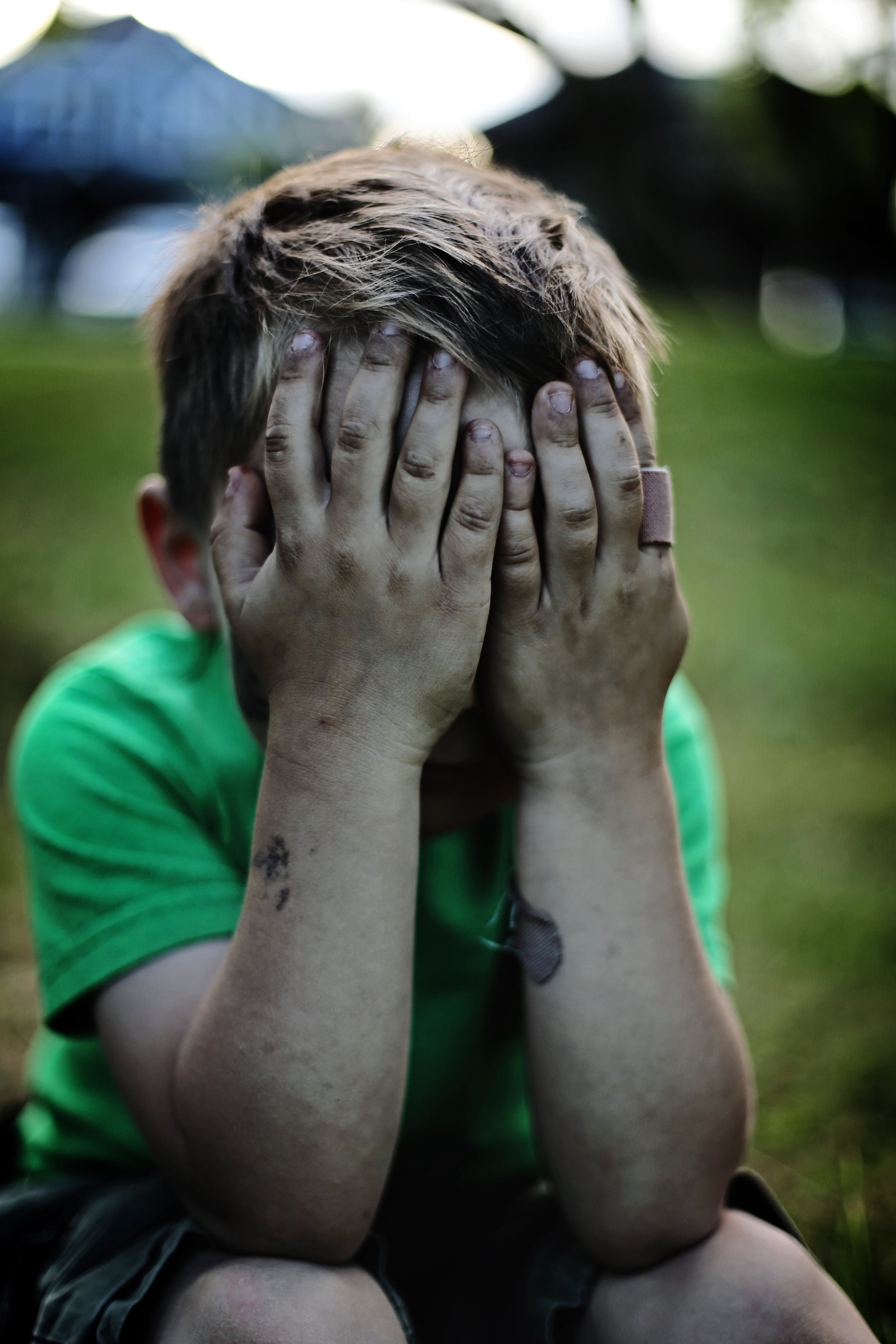Disappointment; Supporting Our Child Through Disappointment And Why These Experiences Are So Important.
As parents and caregivers, our natural instinct is to protect children from negative emotions like disappointment. It can be so hard to see our children get upset, withdraw or lash out and sometimes we may do whatever we can to avoid a negative behaviour that we know will occur when that disappointment is felt. For example, we may forgo getting dinner ready on time so that they can join a friend that’s just arrived at the park despite having spent an hour there already, or we may choose not to not to let our child know that the reason she can’t play with ‘Eva’ today is because ‘Eva’ is at a mutual friend’s party that they weren’t invited to.
We may also find ourselves distracting our child from the disappointment or buying something for our them to make them feel better.
While occasionally shielding your child from the odd disappointment when your emotional capacity is at its limit (and you, therefore, wouldn’t be able to support the emotion that comes up), continually shielding children from disappointment can hinder their emotional growth and resilience as disappointment is an inevitable part of life and an essential teacher.
What Is Disappointment?
Disappointment is an emotional response to unmet expectations or desires. It creates a flood of different sensations throughout the body and occurs when we hope for a certain outcome and reality falls short of our aspirations. For children, disappointment can arise from various situations, such as not getting the toy they really want, losing a game, or not being chosen for a particular opportunity. While these experiences might seem trivial to adults, they are genuinely significant for children and deserve attention and empathy.
Why Is It So Important For Our Children To Experience Disappointment?
When we don't allow our kids to go through the process of being disappointed, we are depriving them of the opportunity to develop resilience and ultimately confidence that they can overcome or at least survive setbacks.
With support we can encourage problem-solving and coping skills, we can help them develop constructive ways to handle disappointment, such as seeking support, trying again, or adapting their approach.
Children are meant to fall sometimes when they’re climbing, it’s okay that they graze their knees when they’re running too fast. They can shout and get upset when they lose a game or miss a goal or target. It is recovering from these moments that matters the most. Every one of those moments has a gift of courage and resilience for us and our children.
The more that our children practice overcoming setbacks in moments of disappointment, the better they get at it.
Instead of avoiding moments of disappointment, we need to be embracing them as a form of training for life. Our children will then start to understand that making mistakes is part of the learning process and doesn’t define their worth.
How Can We Support Them Through Their Disappointment?
We certainly don’t leave our children to deal with disappointment on their own. We allow the disappointing situation to occur, but are ready and waiting to guide them through to the other side, where they experience feeling stronger and more equipped to deal with it again next time.
When our child experiences disappointment, the first step is for us to acknowledge their feelings.
We don’t dismiss or trivialise their emotions, we create a safe space for them to express themselves.
If we never allow kids to experience the full wave of an emotion then emotions can be very scary things. We listen and validate their feelings, which helps our child understand that it's okay to feel disappointed. Validating in this way fosters emotional intelligence and strengthens our bond with them.
We can share a similar experience. It’s important here to avoid trying to make your disappointment bigger in comparison, the aim is for them to realise that they aren't the only one to have experienced this. By sharing a time when you felt the same way you are connecting with them on that emotion.
We can provide perspective for our children. Our young children especially, don’t have the perspective adults have as a result of having lived through our share of disappointments. Instead, they may see things in black and white, thinking they will never be good at something or they will never get a certain opportunity.
We can show them some simple strategies to shift their emotional energy, such as deep breaths, walking, patting the dog or playing music. We can also remind them of previous moments of disappointment that they have overcome and that even though this situation is different, they can use some of the same skills to get through it.
It can also be helpful to support our child in realising that it’s actually okay to not be good at somethings. We can't all be good runners or great singers. Help them find what they are good at and follow goals for that.
We can support our child in setting achievable goals and to celebrate progress rather than just focusing on the end result. Managing expectations also means recognizing that not everything will go their way, and that's perfectly normal.
As well as setting achievable goals it can also be helpful to set a new goal following a moment of failure, as it refocuses them towards a future possibility of success, rather than leaving them stuck in the disappointment.
Other Ways We Can Help Our Child With Disappointment
Playing endless games with our children is the best way for them to learn how to lose and recover.
It’s far better for us to play these games without the virtual world and play in real time. Digital devices can’t give us the authentic experience of disappointment and recovery, it often just hurries a child through to trying again quickly without processing the emotion. This can then encourage our children to simply choose avoidance and distraction rather than authentic coping mechanisms.
We can help our children recognise that feeling disappointed is a very normal human experience and that we don’t have to be perfect at anything.
We can help them understand that we can choose to not dwell in the disappointment and move away from trying to be perfect. We can do this by encouraging them to give things a go and take part in activities they enjoy and find solace in. Hobbies, sports, creative pursuits, and spending time with friends can be wonderful outlets for releasing negative emotions and cultivating a positive mindset.
This is where our modelling can really be helpful; we can ensure we are demonstrating our willingness to give things a go and make mistakes along the way.
When we make mistakes and face disappointment ourselves we can model our coping behaviours.
We can say how we feel when an appointment got changed or meeting with our friends was cancelled, and we can also let them hear how we problem-solve.
Disappointment is an integral part of life's journey, and sheltering children from it only deprives them of valuable life lessons.
Embracing disappointment as an opportunity for growth empowers children to develop resilience, cope with challenges, and navigate life's ups and downs with confidence. As parents and caregivers, our role is not to shield them from every disappointment, but rather to support and guide them through these moments, helping them build emotional intelligence and inner strength that will serve them well into adulthood. Let's foster a generation of emotionally intelligent, resilient, and adaptable individuals who can navigate life's disappointments with grace and determination.











